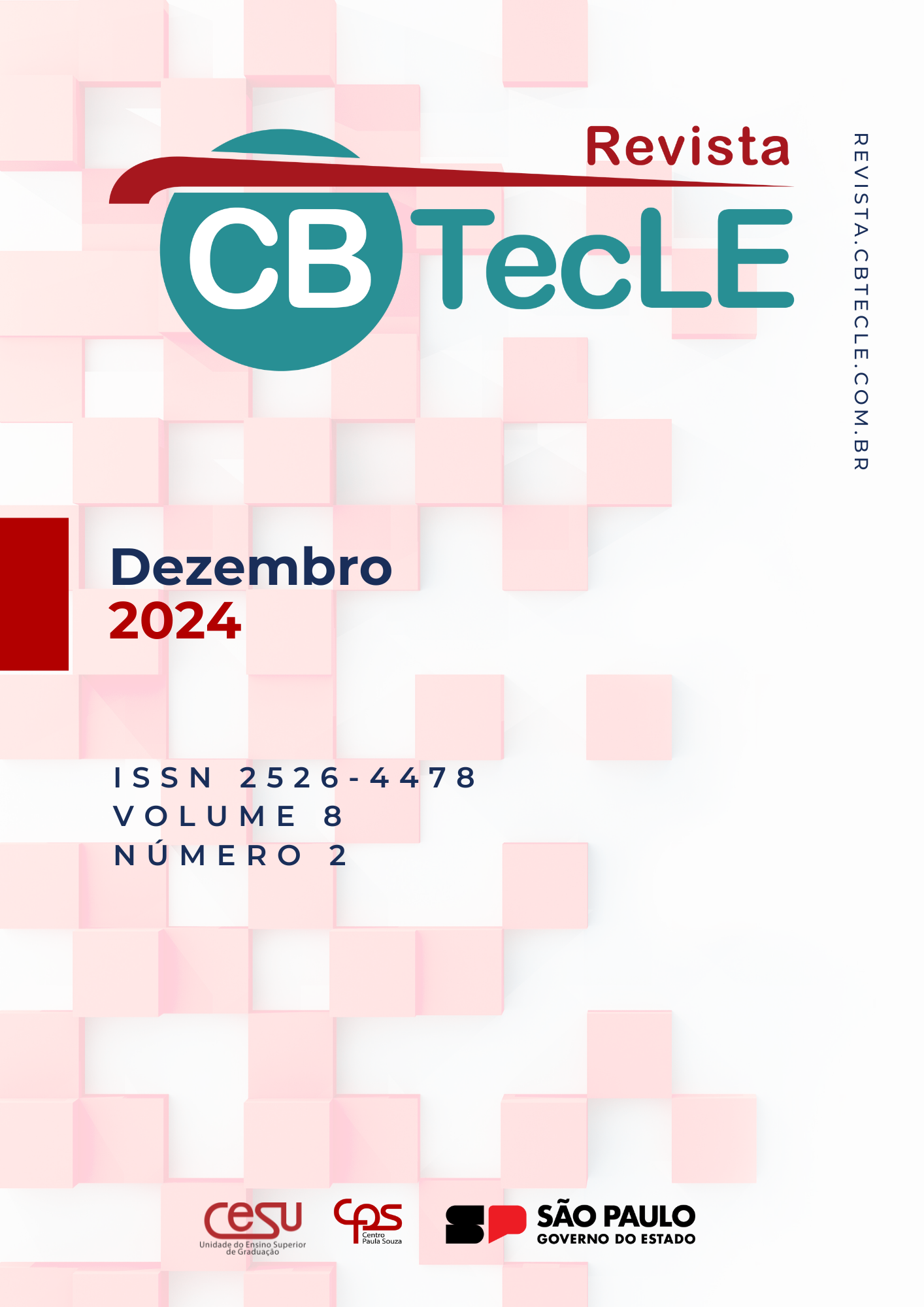O PAPEL DAS METODOLOGIAS ATIVAS E ATIVIDADES LÚDICAS COMO MECANISMOS REDUTORES DO FILTRO AFETIVO NA APRENDIZAGEM DA LÍNGUA INGLESA
Keywords:
Active Methodologies; Affective Filter; EnglishAbstract
This research seeks to analyze the influence of the affective filter hypothesis (Krashen, 1982) on the process of learning a new language, investigating the introduction of playful activities and active methodologies as pedagogical instruments that facilitate the reduction of the affective filter, which can contribute students' motivation. The aim of the work is to contribute to discussions about the affective filter and its relationship with motivation in the learning process, and to determine whether a more receptive environment for students can reduce this filter, based on the hypothesis that the introduction of engaging and active methodologies in pedagogical approaches can facilitate and enhance learning. The analysis results from a survey with English language teachers, obtained through a questionnaire via the Google Forms platform, which allowed us to analyse the influence of the affective filter and the role of motivation in the process. The results obtained indicate that motivation during classes can help students' engagement, and therefore, with the reduction of the affective filter, learning English as a foreign language can be empowered. Furthermore, the study allows the proposal of a third motivation for learning English, which is called pedagogical motivation.
References
ANASTASIOU, L.G.C. Estratégias de Ensinagem. In: ANASTASIOU, L.G.C.; ALVES, L.P. Processos de ensinagem na universidade: pressupostos para as estratégias de trabalho em aula. Joinville: UNIVILLE, 2007
BRITISH COUNCIL. Demandas de Aprendizagem de Língua Inglesa no Brasil. 1a. edição. São Paulo: British Council Brasil. 2014. Disponível em https://www.britishcouncil.org.br/pesquisas-infograficos
BZUNECK, J. A. As crenças de auto-eficácia dos professores. In: F.F. Sisto, G. de Oliveira, & L. D. T. Fini (Orgs.). Leituras de psicologia para formação de professores. Petrópolis, Rio de Janeiro: Vozes, 2000.
CALLEGARI, M. O. V. Reflexões sobre o modelo de aquisição de segundas línguas de Stephen Krashen: uma ponte entre a teoria e a prática em sala de aula. Trabalhos em Linguística Aplicada, v. 45, p. 87-101, 2006.
CAVALCANTI, M. C. A propósito de Linguística Aplicada. Trabalhos em Linguística Aplicada, n. 7, p. 5-12,1986.
DIESEL, A.; MARCHESAN, M.; MARTINS, S. N. Metodologias ativas de ensino na sala de aula: um olhar de docentes da educação profissional técnica de nível médio. Revista Signos, Lajeado, ano 37, n. 1, 2016.
ECKERT, K.; FROSI, V.. Aquisição e aprendizagem de línguas estrangeiras: princípios teóricos e conceitos-chave. Domínios de Lingu@ gem, v. 9, n. 1, p. 198-216, 2015.
ELLIS, R. Understanding Second Language Acquisition. Oxford: OUP. 1985
ELLIS, R. Task-Based Language Teaching and Learning. Oxford: OUP. 2003.
FREIRE, P. Pedagogia da Autonomia: saberes necessários à prática educativa. São Paulo: Paz e Terra. 1996.
GARDNER, R. C. Social Psychology and Language Learning: the roles of attitude and motivation. Londres: Edward Arnold. 1985.
GARDNER, R. C.; LAMBERT, W. E. Attitudes and Motivation in Second Language Learning. Massachusetts: Newbury House Publishers. 1972.
GÓMEZ, P. C.. A motivação no processo ensino/aprendizagem de idiomas: um enfoque desvinculado dos postulados de Gardner e Lambert. Trabalhos em Linguística Aplicada, Campinas, São Paulo, v. 34, 2012.
GRIFFIN, K. Lingüística aplicada a la enseñanza del español como 2/L. 2 ed. Madrid: Arco Libros, 2011
KRASHEN, S. Principles and Practice in Second Language Acquisition. Oxford: Pergamon Press. 1982
LONG, M. 1985. Input and second language acquisition theory. In S. Gass and C. Madden (eds) Input in Second Language Acquisition. Rowley Mass.: Newbury House.
SEIDLHOFER, B. Understanding English as a Lingua Franca. Oxford: Oxford University Press, 2011.
TORRES, Larissa Lorena Quirino. A música no ensino-aprendizagem de ESL: uma proposta usando o álbum Thriller. 2023. Trabalho de Conclusão de Curso. Universidade Federal do Rio Grande do Norte.



